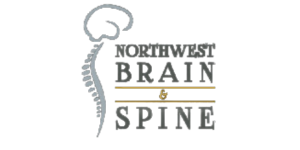
The MedMan Management Podcast_ Deliberate Culture: Audio automatically transcribed by Sonix
The MedMan Management Podcast_ Deliberate Culture: this mp3 audio file was automatically transcribed by Sonix with the best speech-to-text algorithms. This transcript may contain errors.
Jay Holmes:
Welcome to the Medical Management Podcast. A podcast focused on helping you level up your practice. Through interviews with some of the most successful leaders in the industry, we help uncover resources, tools, and ideas to help you level up your practice. Thanks for tuning in and we hope you enjoy today's program.
Jesse Arnoldson:
Hello and welcome to the MedMan podcast. I'm excited today to welcome back Molly Ramsay to the show. We're going to spend some time talking about deliberate culture, as well as diving deeper into one of our MedMan values. Molly is the corporate operations director here at MedMan and one of the four principles of the company. Molly, welcome back!
Molly Ramsay:
Hey Jesse! Happy to be here.
Jesse Arnoldson:
I am grateful that you'd be so willing to come back on the show with such a quick turnaround after doing your interview with Jay. Thank you.
Molly Ramsay:
Happy to do it!
Jesse Arnoldson:
Well, the reason I wanted to ask you back so quickly is there's a specific topic on being very deliberate with an organization's culture. And how do you develop it, maintain it, maybe rescue it if it's gone astray. And you're just my favorite person to talk to about these kinds of things. So excited to dive into it. Molly, let's kick things off with our own story. Let's let's use MedMan as an example. There are lots of reasons for us to step in. And in 2018, when Jim was getting ready to sell the company and we had the opportunity to meet the moment, there were lots of things motivating it, us for it, whether it was career path or for financial success. But culture played a huge part in it. Can you maybe share with the audience a little bit about MedMan culture up to that point and why it played such a big part in our business decision?
Molly Ramsay:
Yeah, absolutely, Jesse. And I'm happy to be invited to talk about this, because I think just in the most recent episode that I was, kind of interviewed for my introduction was a question that Jay posed to me in terms of what is the biggest challenge that I'm being faced with in my job. And my response was related to culture. So this is something that I definitely have on my mind. And as you suggested, when we were contemplating the purchase of the organization back in 2018, this was like the slam dunk reason why I wanted to jump on board, was the culture. Every organization or clinic is going to have culture. You either have kind of the culture that has happened to you, it's the default culture, it's happenstance, or your culture is created through deliberate actions. And MedMan was definitely a product of its founders emphasis on culture. And it was probably best described by how you felt as an employee. So with the, for now owners of MedMan, we happen to have all were previously employed by the company. So we got to experience it. And what I mean by how it felt is how you felt supported, how you felt connected to the individuals, and it wasn't just on a professional basis. You felt kind of on a personal standpoint that these were individuals that were making you better just all around as an individual. They are individuals that you wanted to spend time with outside of work. You would choose to spend time with them.
Jesse Arnoldson:
Right, right!
Molly Ramsay:
You wouldn't feel resentful if you had to spend time with them outside of work, and professionally, it was a culture of not wanting to be the person that was kind of getting dragged along because everyone was challenging you to kind of rise up and be on your A-game. And that was because of the, you know, the particular way in which Jim was very deliberate in kind of creating the relationships and how people were selected to be members of the MedMan family, so to speak.
Jesse Arnoldson:
I know that there were big parts of our culture, kind of things that we would put in our orientation, that in our interview process, where we would kind of tell these big cultural things. But there were lots of small things that Jim enforced that were deliberate and very impactful when it came to our culture. Can you tell me maybe a few examples of the small but deliberate things that Jim used to do?
Molly Ramsay:
Oh, for sure. So a couple of things. Just even on the interviewing standpoint and for those individuals who are maybe listening to this podcast, a little make note of this, so we always shared a meal with a candidate for as part of our interview process. And that was, a couple of layers to that, one in that you put someone in a social setting and you just get to see a little bit more about their personal, you know, their ability to kind of build relationships and carry on conversations. And then really the most important piece of that was how do these individuals interact with other people outside of those folks that you're at the meal with. So the wait staff, people as you're entering in the restaurant, so what he was looking for is people who are going to hold the door as you're walking in to the restaurant, as someone is filling the water glass, does that candidate acknowledge the wait staff and tell them thank you for filling the water glass. Those things are absolutely very deliberate. Another example that during our interview process was that really stood out to them as a prospective person joining MedMan is how hungry where are they for the job? So, you know, if someone were to say, oh, I'm sorry, I've got a conflict, I can't meet you there, Jim would kind of take that as a moment of pause and say, OK, how hungry is this person? And so he would actually, I remember of actually a couple of instances where he would say, hey, Molly, I'm flying from point A to point B and I've got a layover and this destination and I know we're talking to a candidate who happens to live in this area, see if they'll meet me at the airport and interview with me. And that was really telling to Jim and I eventually learned as well is if somebody was willing to make a kind of jump through a couple of hoops to accommodate Jim's schedule at the airport and meet in kind of a random location for this interview, they obviously had a pretty strong interest in the job. And for the couple of instances that come to mind, those people ultimately did get the job and ended up being a really great addition to our team.
Jesse Arnoldson:
I love that. And I think that that's carried forward in you and me as we're as we're interviewing people. I know me, personally, I want to see a little bit of hunger. I mean, I know that I'm interviewing them just as much as they're interviewing me. But if somebody is a little bit, how do I say this, lukewarm in their commitment or their interest or in getting together or whatever it may be, I take it extremely personal and like, look, if you're not excited to come work for me, I don't, I don't have time for this. And I, you know, I move on and maybe it's a little petty, but I think that that maybe is influence from Jim's persistence on that kind of stuff. And I know in our interview process there's the do you want to hang out with this person? Would you like to hang out with this person at MMU or a company get-together? And at first, I thought that was kind of silly. But now I respect it a lot because Jim wanted us to have real relationships and that requires us to have social relationships, too. And to want to be near these people when you're not having to be near them is essential. I like that.
Molly Ramsay:
Absolutely, well, Jesse, I want to put that question to you in terms of, you know, what were some of the deliberate things that Jim so set on doing.
Jesse Arnoldson:
Yeah.
Molly Ramsay:
That you picked up on?
Jesse Arnoldson:
Yeah. You know, he was, whenever somebody would come to town or if I was to go to his house or basically in the essence of him or us entertaining somebody else in our setting, like, he wanted to make sure we were on time, that there was something set up for them, that there were all these things to make them feel special. And when that didn't happen, he wouldn't let somebody live that down. And I loved that. I think you and I, you found an old letter of an administrator who hadn't really rolled out the red carpet for another visiting administrator who was coming to help him and do work for him. And he let him have it like, no, you let him sit in the waiting room. You relate to this. You weren't super welcoming here. You didn't invite him to dinner. You didn't. And that was important to him, that if we were committed to each other, we're in this team together. You show you show this person your respect and your investment in them by doing these things. Other small things, we had a meeting on Fridays that was absolutely essential. And unless you were with a client on an assessment or out traveling or something like that, you were there and you were there on time and you respected that time. That was when we made important business decisions. And you're going to be there. Gosh, dang it, I think about those things all the time. I do remember an example of yours where a high level chief operating officer candidate came to town and interviewed and maybe I've shared the story on the podcast before, but he wouldn't look at the waitress. He wouldn't acknowledge her. He wouldn't say thank you, didn't do any of that. And that bugged Jim like crazy. And when Jim told him he didn't get the job and he asked for a reason why he included that, and this candidate was just blown away. But Jim finally explained, you know, you're going to be in our clinics. You're going to be rubbing shoulders with receptionists and medical assistance and other people who are, you know, maybe not in your quote-unquote social circle. And if you're not treating them well, if you can't look them in the eye and be grateful and courteous and talk to them, then you're just going to make us look bad in all of these clinics. And the guy, I don't think he ever took that lesson to heart, but it's these small things that mean big they make big impacts, right?
Molly Ramsay:
Absolutely.
Jesse Arnoldson:
Molly, tell me how you've seen at the risk of being a little bit vulnerable, you and me as owners, but how has the culture changed from where Jim took it, 2018, to where it is now? How is it evolved for the good or bad?
Jesse Arnoldson:
Yeah, I think the jury's still out on this a little bit, Jesse, in the sense that we're going on a couple of years in terms of ownership and culture is something that you can't hurry up and hit the password button and get to the destination that you want to be at. So we are suggesting early on in this conversation is we inherited, we were fortunate to buy into a company and inherit a culture that we were excited about and that had previously, you know, had been highly influenced by one individual because MedMan was owned by one person. And now we come along and there's four of us. So there are four personalities.
Jesse Arnoldson:
And very different personalities, right?
Molly Ramsay:
Yes. Yes. So to give any, of those of you who are listening to this, the four of us owners of MedMan, if you are familiar with the DISC assessment, each one of us, our primary personality is represented by each of the quadrants. And so I am very high S and Jesse is a very I and our counterparts represent D and C, so we couldn't be more different.
Jesse Arnoldson:
Yeah.
Molly Ramsay:
So when you look at us as owners and culture is very much influenced by each and every member of the company, that's not a top-down. And so we certainly have an important part in it, though, because as leaders whether, you know, it's up within MedMan or it's a manager within a department or whatever, a lead within the front desk, whatever it might be, you have to model the behavior and model it as a leader. And that is so, so important. And I think we're still kind of finding our groove in terms of what that looks like. And I'm happy to report, and I hope that our employees that report that, much of what was good about MedMan in terms of the culture remains in existence. But we have also to be, do some self-reflection and be really honest with that. We also have come to learn that we maybe were a little bit lax on some of the things that we had previously been really deliberate about or that Jim had really emphasized, and now we get it. Why he paid attention to some of those details. And we didn't maybe realize the impact of kind of loosening up the reins on some things or not paying attention to something is making it a priority as much as he had. And now we're kind of learning why it was that he did the things that he did. And so it's been important for us to kind of step back and just have a conversation and say, you know, what are priorities, and do we want to continue to make this a priority or recommit to it. And that's a work in progress, I would say.
Jesse Arnoldson:
Absolutely. It's kind of like college kid or the kid that's going off to college, right, with the really strict parents. And you realize after a few crazy benders or whatever it is and your grades are going low, and these are all the reasons your parents said to go to bed on time and not do this and that. That's how I felt like, yeah, loosen up a little bit, but after a few years, you see the effect of it. Can I show an example of just.
Molly Ramsay:
Oh, absolutely!
Jesse Arnoldson:
Exactly that? I remember when Hillary, my wife, and I were building our house, we had only one opportunity to get into the design studio, to pick out the carpet, the colors, the everything. And it happened to land on a Friday during our CT meeting, which was a no-no for Jim, like you had to be at those meetings. And I emailed him and I asked for permission. I explained the circumstances. And he's like, you know, I really feel for you, Jesse, but I need you to be at that CT meeting. And I was grumpy about it. I took the meeting from the car so that I could, as soon as it was done, hopped back into the design studio and help pick out stuff. And I was late. And by the time I got there, Hillary had chosen everything. And so, you know, she was not happy with me. And I didn't have a say in what's in our house except for the thickness of the carpet pad was all I got. And so, you know, that was one of those moments, I was like, man, you know, why didn't you just lighten up a little bit? And then you fast forward and I think a month or two ago, we had a CT meeting on a Friday and I was late, and then I came in and then I had to leave. And then Randy was late. He came in while I was gone. And then Jay had to step out for a second and so did somebody else. And the meeting was terrible, right, like everybody was so frustrated that was on there because we couldn't make a decision because one of the people wasn't there. I come back in and everybody to have to catch me up or something like that. And you called it out and it was that moment I remember that design studio story. I was like, this is why, because of this chaos, this doesn't serve anybody. Our decisions are being made. We're disrespecting each other. And this is, this means something culturally.
Molly Ramsay:
Absolutely. Yes. Yes. Perfect example.
Jesse Arnoldson:
Yeah. You know, Molly, even the best of us can fall into the cultural pitfalls. Can you maybe enlighten us on what some signs are for an organization whose culture is possibly eroding or is just in a shallow state?
Molly Ramsay:
Absolutely. I think this is something that we've learned both through kind of personal experience as well as opportunities that we've had to observe in some of the medical groups that we have done work with or have or taken on as managed clients, and that is a couple of things that I think about this question is paying attention to behavior changes. Perhaps when someone, their attendance starts to become a little bit more spotty at meetings or events, whether it's business or social events. But the, someone who maybe was a regular attendee is now becoming a little bit more hit-or-miss in attending those, perhaps someone who is not being as timely in their responsiveness. So whether it's a phone call back or responding to an email or, you know, they've got a task assigned to them and their response time is slower. It's maybe perhaps someone who stops bringing up issues or asking for things because their perception is that it's not going to get done anyway, or kind of having that attitude of like, why do I even bring it up? It's not going to get done. I actually ask the question of our administrators about what are some of the types of things that they are doing to create a deliberate culture. And I got a response back and I had just posed this question this afternoon, and one of our administrators responded and said, you know, paying attention to the small things and helping them, with something is, what might seem as simple as getting them a new keyboard was her example. I was like, yes, definitely. Those are things that are important to someone because it's going to make their job easier. And if you're not being timely about addressing some of those things and kind of kicking it down the priority list or stalling, then they're going to start to kind of get disenfranchised about like this organization doesn't care about me. Maybe another pitfall that kind of comes to mind, Jesse, is just people who maybe were previously those individuals who were really quick to raise their hand to volunteer for something or spearhead the Sunshine Committee or things like that, and now you're starting to see that they're no longer kind of being that person that you can kind of count on to pipe up and say, yeah, count me and I'll do whatever I need to, and kind of becoming emotionally distant. I think those are all some of the kind of the red flags or the indications that maybe there is a little bit of discontent or some potential problems in terms of kind of the culture of the organization.
Jesse Arnoldson:
I like that a lot. I like where your head goes because it's not, when you're looking for the signs, you've got to go to these individuals and start testing things. And I think they're very foundational things that demonstrate respect to one another that you're talking about those timeliness things and responsiveness and then just a general engagement. Yeah, bringing the flow of ideas, the amount of volunteerism, if those aren't there, yeah, they're, those are vital signs for sure.
Molly Ramsay:
Yeah. People, you're going to start to see this rep in culture so much of how do we work together and how does the team bond and so if you're starting to see kind of those trades or those cracks in relationships and, and how people are interacting or changes and how they once interacted and those definitely, it's time to ask them questions and do some reflection.
Jesse Arnoldson:
Absolutely. I'm guessing that where somebody would start is by doing that kind of assessment, both maybe sampling some individuals in your clinic and then doing some self-reflection. Once you've done that, where do you begin to build after you've done the assessment and all that kind of stuff where, it seems so large and overwhelming, like you said this in the beginning, that it's not anything you can fast forward. Anything you do takes a long time to figure for any sort of reward or change. It's overwhelming. So how do you, where do you start in creating or fixing an organization's culture?
Molly Ramsay:
Oh, man.
Jesse Arnoldson:
There's the million-dollar question, right?
Molly Ramsay:
Exactly. So first step, realizing that culture takes time and cultivation, as you suggested, Jesse, you know, and good intentions and talking about it will not move the dial on improving your culture. So and I think so many of us, we have really good intentions and I have them like daily, I need to reach out to this person and then I don't act on it. That's what I think about culture in organizations, is that, you know, you've had a dream up what you want and you think this is what it is, but if you're not acting on it, there's going to be a disconnect. And so you have to act on those intentions and that's going to take time and being very, very deliberate. And so paying attention to all those little just granular nuances that we were mentioning before that Jim was so good about and that we are where you kind of are picking up on in terms of our own style and our own culture now moving forward, but what are those nuances? So this is going to sound very cliché in terms of kind of the most important stuff is just visualizing it. You have to be able to articulate what you want your culture to look like and what you want it to feel like for employees. And so it's pulling the employees and talking to the governing board, asking employees like what's the environment that if you, if all these things were in place for you to not ever want to leave, what would it look like? And for providers and the governing board to say what this looks like and feel like for you to want to come to work every day and feel like you're satisfied professionally and personally. And so it's getting people to articulate what is it look like and feel like. And then you start to kind of build that action plan of what are the activities that we can be doing that's going to support that, quote unquote, feeling.
Molly Ramsay:
I love it. Molly, thank you! This has been so good. I have so many ideas that are coming out of this specific examples of where I need to begin contributing better to our own culture and how, maybe some areas where I can coach some of our administrators in their own clinics culture. So I hope our listeners are taking away some good ideas here.
Molly Ramsay:
Yeah, I know, Jesse, I am happy to be talking about it. And certainly it's a work in progress for all of us and and just reminding ourselves that we need to carve out time to work towards that.
Jesse Arnoldson:
Yeah, absolutely.
Molly Ramsay:
Thanks for having me.
Jesse Arnoldson:
Of course. Thank you, everybody, for tuning in and listening. I hope it was, it was beneficial. For any other episodes, you can find us on most podcast platforms, but also you can visit us at MedMan.com, for all of our episodes, as well as anything else that MedMan does. Tune in next time where Molly and I will be diving deeper into one of our MedMan values, positivity and getting into the structure of it. We'll see you next time.
Jay Holmes:
Thanks for tuning in to the Medical Management Podcast. We hope you enjoyed today's featured guest. For the show notes, transcripts, resources, and everything else MedMan does to help you level up, be sure to visit us at MedMan.com.
Sonix is the world’s most advanced automated transcription, translation, and subtitling platform. Fast, accurate, and affordable.
Automatically convert your mp3 files to text (txt file), Microsoft Word (docx file), and SubRip Subtitle (srt file) in minutes.
Sonix has many features that you'd love including automated translation, automated subtitles, collaboration tools, enterprise-grade admin tools, and easily transcribe your Zoom meetings. Try Sonix for free today.
Episode Summary
We are so happy to have Molly Ramsay over on the show again!
This time she is here to talk about deliberate culture and its impact on organizations. One of Molly’s biggest challenges and passions is company culture; This is why she jumped into the ship when MedMan was purchased in 2018. At MedMan, they had big company culture actions and small culture actions, like getting a meal with an interviewee as part of the process to get to know them. Together, they go through shared experiences at MedMan and how the culture has impacted their decisions.
Tune in to this episode and leave with excellent takeaways about company culture.
Today’s Guest – Molly Ramsay
Molly Ramsay is the Corporate Operations Director at MedMan. She has a Bachelor of Science in Healthcare Administration from Idaho State University. She also worked as the education and talent director and as director of human resources at MedMan.
Key Take-Aways
-
Every company has its own culture.
-
Default culture is the one that comes naturally; it’s fate.
-
Deliberate culture is the one you create for the company.
-
Deliberate cultural actions can be small or huge.
-
“Culture is something you can’t hurry up.” – Molly Ramsay
-
Behavior changes may be a sign of eroding company culture.
Resources























